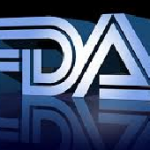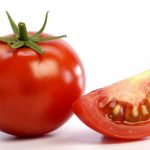fasdf@sadf.tu
Multiple Product Recall Due to Salmonella in Suppliers Milk and Buttermilk Powders
The U.S. Food and Drug Administration (FDA) announced on November 30 that the U.S. Marshals Service seized more than 4 million pounds of product produced by Valley Milk Products LLC (Valley Milk) of Strasburg, Virginia. The U.S. Department of Justice filed the complaint, on behalf of the FDA, in the U.S. District Court for the Virginia Western District, alleging that the seized products are adulterated. The seized products include dry nonfat milk powder and buttermilk powder packaged in 40- and 50-pound bags for further manufacturing and are worth nearly $4 million. During an FDA inspection of Valley Milk from July –...
fasdf@sadf.tu
FDA announced a new strategy to modernize oversight of imported foods
The U.S. imports about 15% of its overall food supply from more than 200 countries or territories. Over the past 15 years, a trend of rising imported foods was observed. Foreign countries now supply about 32% of the fresh vegetables, 55% of the fresh fruit and 94% of the seafood that Americans consume. The FDA announced its new strategy designed to meet four goals in modernizing the oversight of foods imported to the US: Foreign Supplier Verification Program Preventing food safety problems in the foreign supply chain prior to entry into the U.S. FDA will take new steps to assure that imported...
fasdf@sadf.tu
FDA Erroneous Warning Costs Tomato Growers $15 Millions – Court Rules: FDA is Not Liable
On December 2, the 4th U.S. Circuit Court of Appeals ruled that the FDA could not be held financially liable for issuing the false warning. It is clear now that the FDA warning did not help customers who stopped buying perfectly healthy tomatoes, and continued to buy the contaminated hot peppers. This decision was devastating to the tomato growers. The demand for tomatoes plummeted by 40% due to the warnings, and prices fell by 50%. The tomato industry lost millions of dollars. Case History As part of the ruling judge Wilkinson described the detailed history of the case: “On May 22, 2008, the...
fasdf@sadf.tu
Crowdsourcing and Food Safety
Definition Crowdsourcing is defined as taking a job that is traditionally performed in an organization by employees and outsourcing it to a crowd of undefined network of people (non-employees) in the form of an open call. The crowdsourcing participants can be from anywhere, with all backgrounds, as long as they have Internet connection. The use of crowdsourcing is increasing rapidly and had been used in idea generation, wikies, open source software citizen reporters or journalism, citizen science, disaster management. Crowdsourcing utilization in food projects has increased rapidly where companies have for example encouraged consumers to vote for new flavors, colors, names,...



